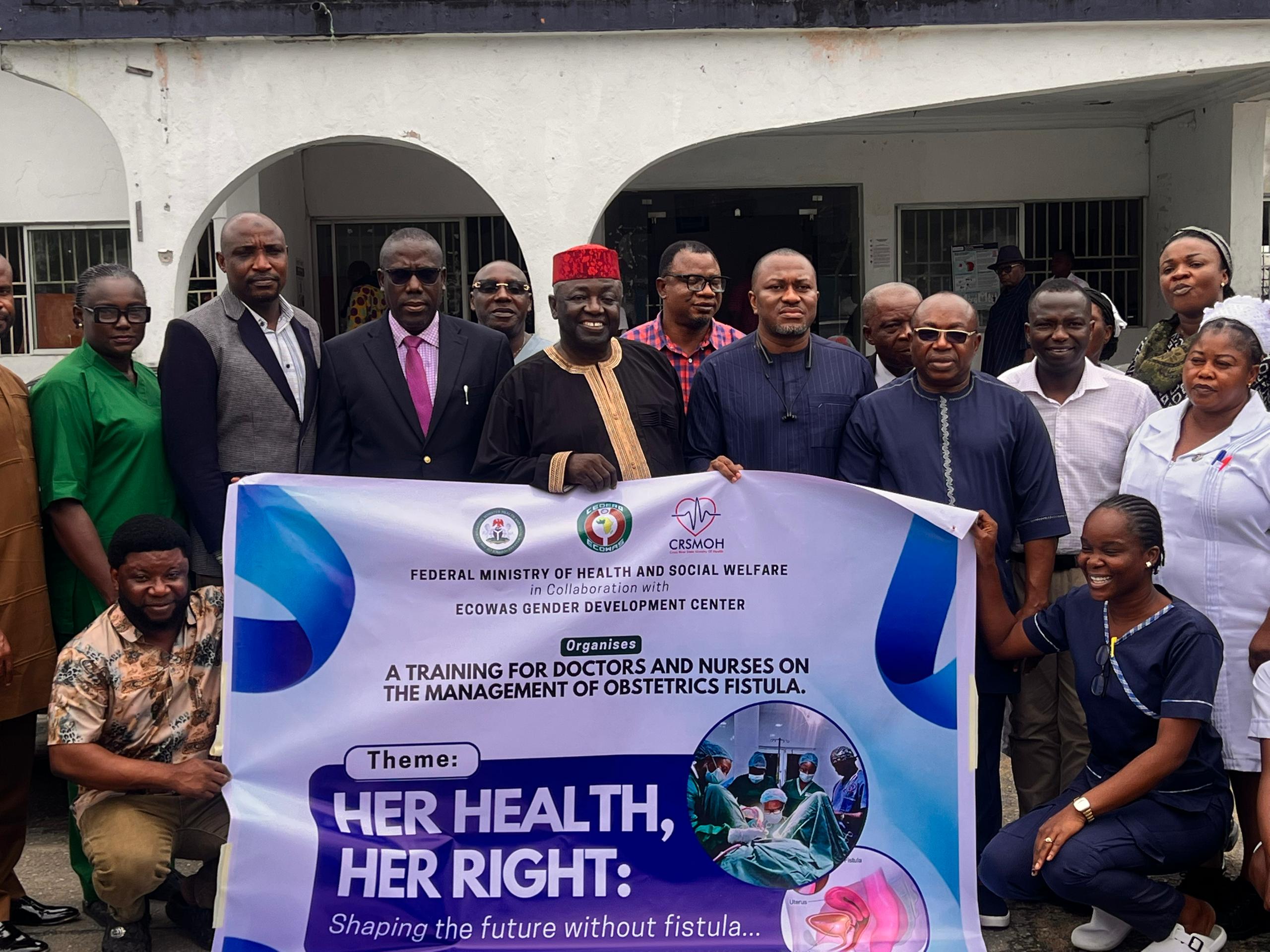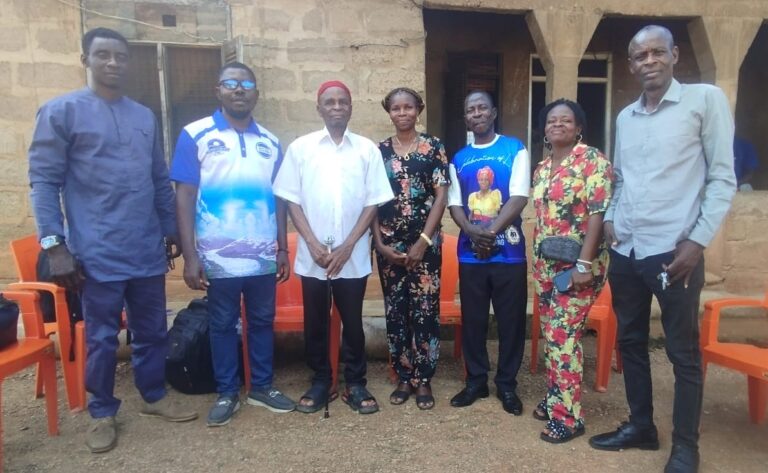
By Kingsley Agim
The Cross River State Government, in collaboration with the Federal Ministry of Health (FMOH), ECOWAS Gender Development Centre, and the Federal Ministry of Women Affairs, has intensified efforts to eliminate obstetric fistula through comprehensive training, facility upgrades, and expanded fistula care across the state.
Declaring open a three-week intensive training on fistula prevention and management in Calabar, the State Commissioner for Health, Dr. Henry Egbe Ayuk, described obstetric fistula as “a major indicator of systemic health failure,” underscoring its devastating impact on women and maternal health services.
“Anytime you come face to face with a fistula, it tells you the health system is not working,” Dr. Ayuk said. “Our duty as policymakers is to train more health workers, strengthen governance, ensure drug availability, and upgrade facilities so that obstetric emergencies can be prevented or adequately managed.”
READ ALSO: Cross River, UNFPA, WHO Advance Bold Health Sector Reforms with SWAp 2026 Plan
He revealed that Cross River currently operates three fistula centres in Calabar, Ugep, and Ogoja, with Calabar as the most functional, while plans are underway to upgrade Ugep and Ogoja to equal standards. “As a government, our goal is to ensure that no woman in Cross River suffers in silence from a preventable condition like fistula,” he assured.
Dr. Ayuk also lauded frontline professionals, particularly veteran surgeon Dr. Etim Ayi, recently honoured by Governor Bassey Otu for his lifelong contributions to fistula surgery. “The Governor has said there is no retirement for Dr. Ayi; he will continue to serve where his expertise is most needed,” the Commissioner affirmed.
Permanent Secretary of the Ministry of Health, Dr. Jonah Offor, encouraged participants to make the most of the training, describing Dr. Ayi as “a treasure and an asset to the state.” He recalled how the surgeon successfully treated him and a relative after years of misdiagnosis, further highlighting the significance of skilled professionals in healthcare delivery.
On behalf of the Federal Ministry of Health, Dr. Henry Jumbo, Head of the Obstetric Fistula Branch, said the initiative was designed to strengthen capacity and sustain progress towards the elimination of fistula nationwide. “Beyond training, the federal government has invested heavily in fistula care. We now have four national centres of excellence, and here in Calabar we have a dedicated theatre, a 30-bed ward, and commodities to support clients. Our goal is to make obstetric fistula history by 2030,” he declared.
Speaking on sustainability, Dr. Ayi emphasized the importance of grooming successors. “My expectation is to see more skilled hands take over so I am no longer first on call,” he said. He noted that the inclusion of fistula repair under the National Health Insurance Authority has been a major boost, enabling patients to access free surgery, feeding, and transport.
Participants drawn from Cross River, Akwa Ibom, Ebonyi, and other South-South states described the programme as transformative. Dr. Anthony Ogar, a fistula surgeon at General Hospital Calabar, said it would “adequately equip” him to handle more cases. Dr. Bridget Nkiruka Uchenweda of the National Fistula Centre, Abakaliki, stressed the importance of thorough pre-operative assessment for full patient recovery, while fistula nurse Patience Adung described the training as “an eye-opener” that expanded her capacity in patient care.
Obstetric fistula, a condition often caused by prolonged obstructed labour, creates abnormal openings between the reproductive tract and the urinary or digestive system, resulting in continuous leakage of urine or faeces. Beyond its severe medical toll, the condition is a social and economic burden, often linked to poverty, inadequate maternal care, and weak health systems.
With strengthened training, expanded facilities, and multi-stakeholder commitment, Cross River and its partners are working towards a future where no woman is left to endure the indignity and suffering of obstetric fistula.






